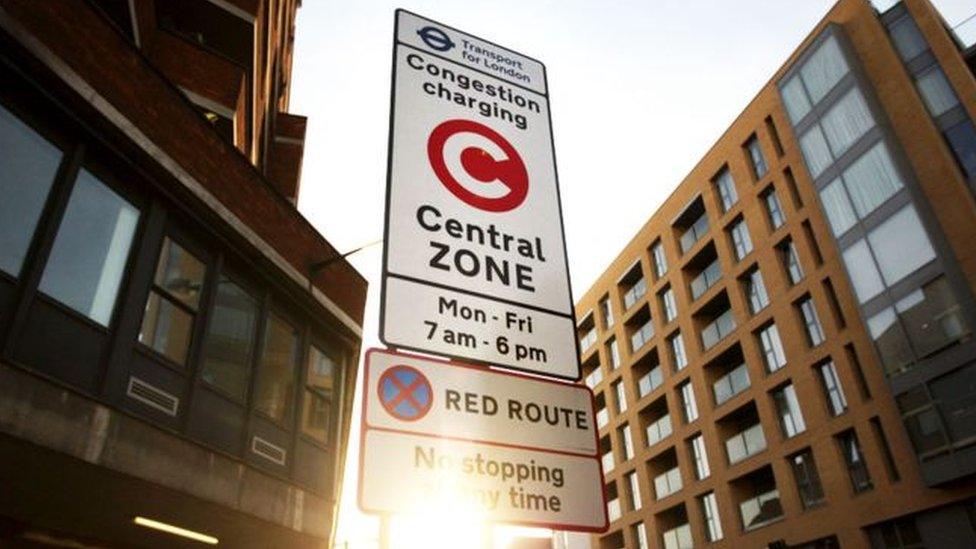Capita to raise ôÈ700m as losses deepen
- Published
- comments

Capita has reported a ôÈ513m annual loss as the outsourcing firm set out plans to revive its indebted business.
The company was hit by ôÈ850m of one-off costs, mainly from writing down the value of acquisitions made under its previous management.
However, underlying pre-tax profits, which exclude restructuring costs and one-off items, rose by 23% to ôÈ401m.
The company said it would raise ôÈ701m through a rights issue to fund a reorganisation of the business.
Capita's shares closed 13% higher at 180.8p in London, valuing Capita at just over ôÈ1.2bn.
It operates the London congestion charge and runs an electronic tagging service for the Ministry of Justice,
The loss compares with a ôÈ89.8m deficit in 2016, while revenues last year fell by 4% to ôÈ4.2bn
However, new chief executive Jonathan Lewis dismissed any comparison to Carillion, the services and outsourcing group that went bust earlier this year.
"I get frustrated with that comparison - we are a completely different business," Mr Lewis said.
"We have ôÈ1bn in liquidity, strong cash flow and a new strategy with investor support. We are not in PFI contracts and have nothing like the risk profile."
Mr Lewis has announced a major overhaul of the company which has debt totalling ôÈ1.7bn. The rights issue will reduce borrowings as well as fund investment.
'Fundamentally strong'
Under its new strategy, Capita plans to raise about ôÈ300m disposals this year and is targeting cost savings of ôÈ175m by the end of 2020.
Capita's share price jumped by 12.7% to 180.1p in early trade.
The company collects the licence fee on behalf of the ǵüµÇ¨û§ and recently won a five-year extension to provide audience services to the broadcaster.
Commenting on Capita's future, Mr Lewis said the business was "fundamentally strong" but "needs to evolve".
He added: "We need to simplify Capita by focusing on growth markets and to improve our cost competitiveness. We need to strengthen Capita and plan to invest up to ôÈ500m in our infrastructure, technology and people over the next three years."
- Published31 January 2018
- Published2 March 2017